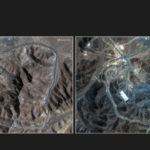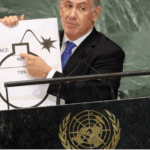Summary by Geopolist | Istanbul Center for Geopolitics:
The article provides an in-depth analysis of China’s maritime strategy around Taiwan, highlighting the notable absence of its maritime militia in gray zone operations. Traditionally, the maritime militia has played a significant role in the South China Sea, conducting operations such as enforcing territorial claims, obstructing foreign vessels, and gathering intelligence under the guise of civilian fishing activities. However, in the Taiwan Strait, Beijing appears to rely almost exclusively on its coast guard forces.
This strategic shift might be ascribed to multiple variables. The limited geographical expanse of the Taiwan Strait and its closeness to mainland China enable the coast guard to sustain a continuous presence without necessitating additional help from the militia. Moreover, Beijing’s aim with Taiwan diverges from its policy in the South China Sea. The former entails sustaining ambiguous, non-escalatory supremacy, whereas the Taiwan Strait operations seek to overtly scare Taipei and heighten its sense of unease. The coast guard, possessing evident authority and armament, is more appropriate for these purposes.
Despite their limited visibility in current operations, maritime militia units in Fujian Province remain a potent force. Fujian’s fishing industry has been deeply integrated with military planning, creating a well-organized militia structure capable of supporting gray zone activities if needed. Militia forces have participated in joint drills with the coast guard, signaling their readiness for future deployments.
The essay posits that China’s choice to refrain from fully utilizing its marine militia near Taiwan is indicative of strategic and operational factors, rather than an absence of capabilities. As tensions in the Taiwan Strait develop, Beijing may deploy these forces for particular functions, like enforcing a blockade, instigating incidents to rationalize military intervention, or augmenting coast guard operations in critical regions.
In summary, although the marine militia is not a significant element of China’s present Taiwan strategy, it exists as a dormant force that might assume a crucial role should Beijing opt to intensify its efforts against the island. This measured caution underscores Beijing’s flexible strategy in pursuing its geopolitical objectives while mitigating the dangers of provocation and escalation.
Read the full article here.







